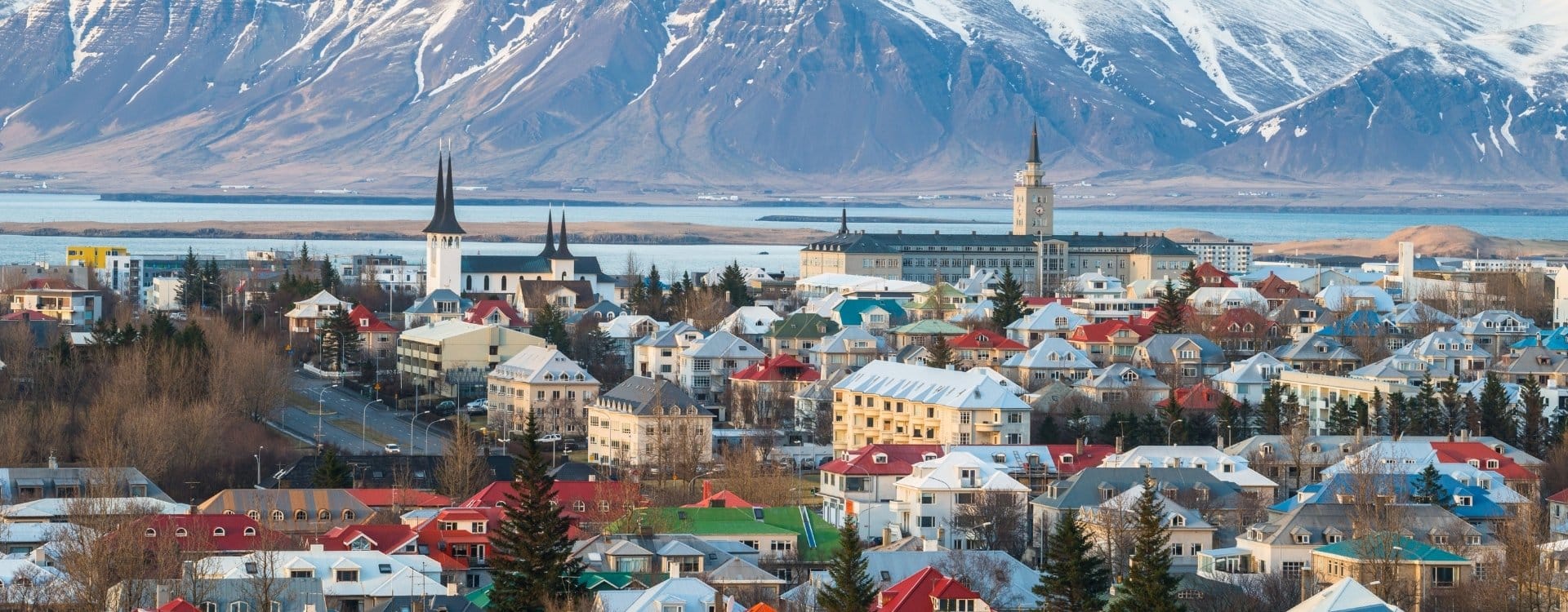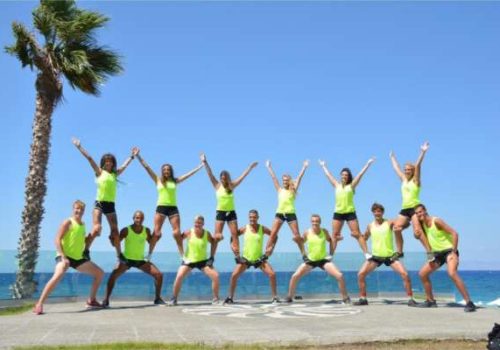Living and Working in Iceland
Information & guidance about seasonal jobs in Iceland
Iceland, the “Land of Fire and Ice,” has become an increasingly attractive destination for people looking for unique working and living experiences. Known for its stunning landscapes, strong economy, and emphasis on work-life balance, Iceland is particularly appealing to expats. This guide will delve into the working environment, lifestyle, and cultural attractions, giving you a clear picture of what to expect when moving to Iceland.
Seasonal jobs in Iceland
We don’t have any jobs matching this search. Below you’ll find a selection of our most popular vacancies!
- Adventure jobs, Hotel jobs, Tourism
- Bulgaria, Croatia, Egypt, Greece, Italy, Spain, Turkey
- Hotel jobs, Tourism
- Cyprus, Greece, Spain
- Adventure jobs, Ski & Snowboard Instructor, Ski & Winter Resort, Tourism
- Canada, Japan, New Zealand, Switzerland, United States
- Tourism
- Cyprus, Greece, Spain
- Hotel jobs, Tourism
- Cyprus, Greece, Spain
- Chef & Cookery, Hotel jobs, Tourism, Waitress-Waiter
- Spain
Working in Iceland
Working Conditions in Iceland
Working conditions in Iceland are renowned for their emphasis on work-life balance. A typical working week consists of 40 hours, often spread across five days, with the average day running from 9 am to 5 pm. Icelanders believe in working effectively within these hours, valuing productivity over long hours at the office. This approach supports a strong balance between work and leisure, which is essential in Icelandic culture.
Moreover, Iceland is one of the few countries with gender equality enshrined in law, meaning there’s a strong focus on fair and equitable treatment in the workplace. As a result, companies here often encourage women to pursue leadership roles, contributing to Iceland’s reputation as a forward-thinking, inclusive society. In addition, employees in Iceland benefit from a high level of job security due to strong labor protections, which cover everything from holiday pay to parental leave.
Vacation time in Iceland is generous, with employees typically entitled to 24 days of paid annual leave on top of 12 public holidays. This time off aligns well with Iceland’s cultural focus on family and relaxation. Icelandic employers also offer flexibility for parents, supporting maternity and paternity leave policies that are some of the most generous in the world. Parental leave is typically shared between parents, with both mothers and fathers given time to bond with their newborns.
Working Opportunities for Expats in Iceland
Iceland’s economy is diverse and relies on key sectors such as tourism, renewable energy, fisheries, and information technology. The tourism industry, in particular, has been growing rapidly and offers many job opportunities, especially during peak tourist seasons. As an expat, you may find work in hospitality, guiding tours, or even in eco-tourism, which has seen a rise in demand over recent years.
For highly skilled professionals, renewable energy and IT are promising fields. Iceland’s commitment to sustainability has made it a world leader in renewable energy, with nearly 100% of its electricity generated from hydro and geothermal sources. Expats with backgrounds in engineering, energy management, or environmental science will find opportunities in these sectors. The tech industry in Iceland, while smaller than in some countries, is also growing, with a focus on innovation and digital transformation.
Teaching English can be another viable path, especially if you are fluent. English language skills are valued in Iceland, and though Icelanders typically have a high proficiency in English, there is always a demand for native speakers in language schools or private tutoring. Some expats also find opportunities in freelance or remote work, taking advantage of Iceland’s high-speed internet and supportive environment for independent professionals.
Salaries in Iceland
Salaries in Iceland are generally high, reflecting both the cost of living and the country’s strong economy. The average salary in Iceland is around ISK 700,000 per month (approximately €4,500) before taxes, though this can vary widely by industry and role. Skilled professionals in fields like engineering, IT, and finance can expect to earn between ISK 800,000 and ISK 1,200,000 monthly, while roles in tourism or retail tend to be closer to the national average.
However, it’s essential to remember that taxes are relatively high, and much of an employee’s salary will go toward these deductions. That said, the high tax rates contribute to excellent public services, including healthcare, education, and social security benefits. Moreover, many Icelandic employers offer additional perks like meal allowances, transport subsidies, and in some cases, even housing assistance to support employees with Iceland’s higher living costs.
Salaries are typically paid once per month, with annual bonuses less common outside specific sectors, such as finance. Performance reviews and salary negotiations usually happen annually, with Icelanders placing importance on transparency and open communication between employees and employers.
Income Tax in Iceland
Income tax in Iceland is divided into municipal and national levels. Tax rates are progressive, meaning the more you earn, the higher your rate. On average, the combined income tax rate hovers around 36-46%, depending on the salary bracket. For example, those earning around ISK 700,000 can expect to pay approximately ISK 260,000 in taxes per month.
The tax revenue supports Iceland’s social services, particularly its comprehensive healthcare system, which is available to all residents and offers high-quality care. In addition to income tax, employees must pay social security contributions, which are deducted from their salary. Despite the high tax rate, Icelanders view these contributions positively, as they directly support their well-functioning welfare system.
Expats living in Iceland must register with the Icelandic tax authority and file annual tax returns, typically due in March. For those new to the country, understanding the tax system may be challenging, but numerous tax advisors and resources are available to help ensure compliance.
Working Culture in Iceland
The Icelandic working culture is known for its informal and egalitarian approach. Colleagues address each other by first names, regardless of seniority, and there’s an open-door policy in most workplaces that encourages collaboration and communication. Decision-making in Icelandic companies is usually democratic, with input valued from all team members, creating a positive and inclusive work environment.
Icelanders prioritize work-life balance and do not typically work overtime unless necessary. When overtime is required, compensation is strictly regulated, either through additional pay or time off. The concept of “hygge” (coziness) from neighboring Scandinavian countries also influences Iceland, fostering a culture where stress is minimized, and comfort is prioritized.
A significant part of the Icelandic working culture is supporting gender equality and family time. Iceland has a robust parental leave policy, which allows parents to split time off after the birth of a child. This policy strengthens family bonds and enables parents to share responsibilities, contributing to a balanced and supportive work environment.
Networking in Iceland
Networking in Iceland is crucial, especially for expats looking to make connections in a smaller job market. Icelanders tend to value trust and personal recommendations highly, so networking can open doors to new opportunities. Many professional events, particularly in Reykjavik, the capital, cater to international and local professionals alike.
Organizations like the Icelandic Chamber of Commerce and the Association of Women Business Leaders offer networking events, conferences, and seminars where expats can meet industry leaders and build relationships. Iceland’s work culture emphasizes mutual respect, so being genuine, friendly, and interested in others will help you make a good impression.
Additionally, Reykjavik has a thriving start-up scene, with various co-working spaces that offer networking events, workshops, and meetups. Joining these communities can be an excellent way for newcomers to connect, share ideas, and even find potential job leads in Iceland’s growing tech and innovation sectors.

Living in Iceland
Benefits of Living and Working in Iceland
Iceland offers an excellent quality of life, with high standards in healthcare, education, and personal safety. One of the biggest benefits is Iceland’s commitment to environmental sustainability, seen in its extensive use of renewable energy, clean air, and unspoiled landscapes. This makes it an ideal place for those who value a healthy environment.
In addition to environmental benefits, Iceland’s healthcare and education systems are among the best in the world. The healthcare system is accessible to all residents, providing high-quality services without overwhelming out-of-pocket expenses. Education is also free for residents, making it attractive for families considering relocating.
Iceland’s small population and low crime rates contribute to a safe, close-knit community where people look out for each other. The country has consistently ranked as one of the safest places to live, and locals are generally warm and welcoming to expats. Despite the colder climate, Icelanders are known for their hospitality, which can help newcomers feel at home.
Accommodation in Iceland
Finding accommodation in Iceland, especially in Reykjavik, can be challenging due to high demand. Rent prices are generally high, with a one-bedroom apartment in Reykjavik averaging ISK 150,000 to ISK 200,000 per month (around €950 to €1,250). For larger apartments or homes, prices can easily exceed ISK 250,000 monthly, particularly in desirable neighborhoods.
Short-term rentals or Airbnb options are often used by new arrivals before securing permanent accommodation. Once settled, expats can find properties through online platforms such as Leiga.is and Fasteignir.is. In smaller towns and rural areas, rent prices are significantly lower, but housing options may be limited.
Some employers offer housing assistance, especially for those in specialized fields like healthcare or teaching. Expats looking to save on rent might also consider shared accommodation, which is a popular option among students and young professionals.
Cost of Living in Iceland
The cost of living in Iceland is relatively high, largely due to import costs and the isolated location. Essential groceries like milk, bread, and eggs are about 20-30% higher than in mainland Europe. A weekly grocery shop for a single person can easily total around ISK 10,000 to ISK 15,000.
Transport, utilities, and leisure activities also add to the expense. However, wages are proportionately higher, so most residents find that they can maintain a comfortable standard of living. Budgeting and planning for these expenses are essential for new arrivals.
Iceland’s VAT is one of the highest in Europe at 24%, which affects the cost of goods and services. Despite this, locals appreciate the country’s high quality of life, and the increased cost of living is balanced by the benefits of living in such a clean and well-organized society.
Where to Live in Iceland
Reykjavik is the preferred choice for most expats, as it is the capital and offers a wide range of amenities, from restaurants and shops to cultural sites. The capital is known for its unique architecture and vibrant social scene, making it a popular choice for both expats and locals.
Outside Reykjavik, Akureyri in the north is the second-largest city and offers a slower pace of life, stunning landscapes, and lower housing costs. Smaller towns, such as Selfoss and Husavik, offer quiet living surrounded by nature but have fewer job opportunities.
Each area has its unique appeal, so it’s worth visiting different parts of Iceland before choosing a permanent residence. Many newcomers start in Reykjavik and gradually explore other options once familiar with the country.








